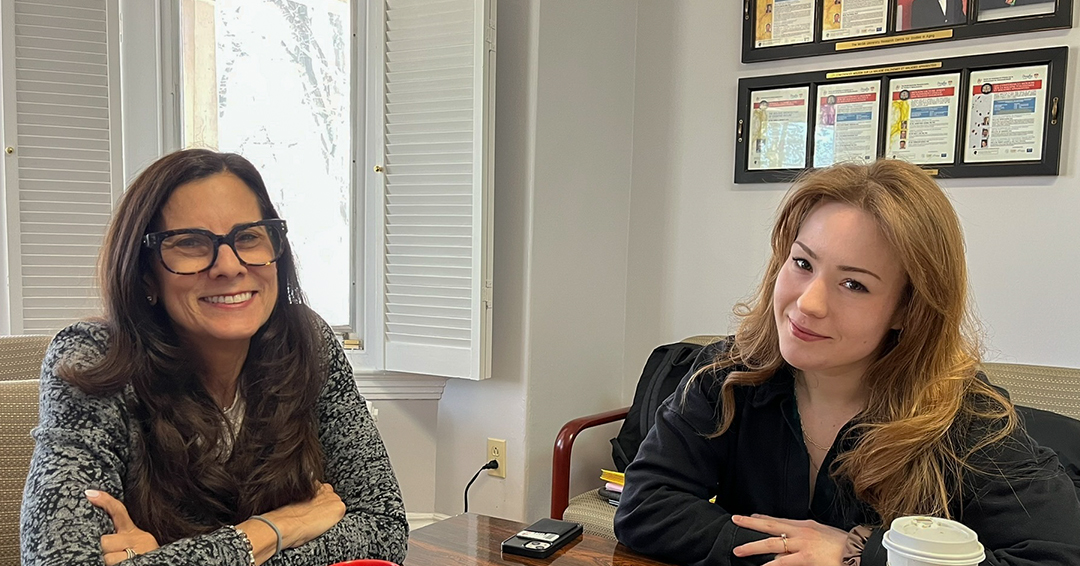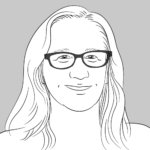
“I believe that older adults are often overlooked in our society,” says McGill student Ashley McCarthy-Sinasac. “As our population ages, it’s becoming increasingly clear that they need and deserve more support. They represent an incredible generation full of wisdom, rich life experiences and amazing stories to share. I love being able to support them, and if I can make even a small difference in their day, that feels like a success to me.”
Ashley’s fondness for the elderly population began at home, where she shared a particularly strong bond with her grandmother. This appreciation deepened during her first job as a cashier at the local grocery store where she regularly connected with elderly customers. “These interactions opened my eyes to the diverse experiences of older adults and sparked a desire to want to make a difference in their lives,” explains Ashley.
She completed a three-year Special Care Counselling Program at Vanier College where her stage in a long-term care facility led to a full-time job. After several years of this deeply rewarding work, Ashley returned to school to pursue a Bachelor of Social Work undergraduate degree at McGill University to further deepen her knowledge and professional skills and continue to serve the aging population.
Providing a safe space for care partners
For her final work study stage from September 2024 to April 2025, Ashley provided caregiver assessment and short-term supportive counselling sessions as part of a new pilot project, Caring Spaces, which aims to empower and support family members or friends who are the primary care partners of a person living with dementia (PLWD). This initiative is the result of a collaboration between three McGill entities: the Dementia Education Program, the McGill University Research Centre for Studies in Aging (MCSA) and the School of Social Work (SSW).
Caregivers are referred to this free service by MCSA physicians and offered 5-10 sessions of caregiver support using a wholistic coaching approach. Ashley’s role was to listen to the caregiver, assess their needs and guide them towards the appropriate educational resources and services.
To prepare her for this important role, Ashley was trained and supervised by Joanne Besner, MBA, BSW, Field Education Supervisor for the SSW. Joanne explains that this initiative allows students to consider the role of the care partner, who is viewed and counted on as the first one in line to help the PLWD.
“Their role is precious and needed, but care partners have their own needs as well. Who cares for the caregiver? As a social work intern, Ashley was able to fulfill this crucial role. With her presence and compassion, she supported care partners around their own needs and issues in their caregiver role, giving them a safe place to talk and share their own concerns, emotions, fears and hopes.”
Care partners felt heard and validated by Ashley and reported being grateful for her presence, as seen in this feedback from a care partner who was counselled by her: “Ashley is an incredibly kind and compassionate social work student. It was an honour to exchange with her, and she will be a valuable resource in a dark world desperately in need of bright lights.”
Looking Forward
During her internship, Ashley came to realize just how much caregivers themselves need support. “I used to see them primarily as a resource for the person they are caring for, and it hadn’t occurred to me to check in with them. This experience really shifted my perspective. Moving forward, I’ll make it a priority to ask caregivers how they’re doing and make sure they have the right supports in place to ensure they feel seen, heard and supported too. “
This thoughtful and hard-working student will be celebrating the successful completion of her SSW undergraduate degree this spring, but she will be back at McGill this fall to start her Master of Social Work degree. In between, she will carve out some time to do other activities that she enjoys, whether it’s baking, going to concerts, or working out.
And on that note, Ashley shares her final advice for caregivers: “Your well-being is just as important. Don’t forget who you are and what you like to do and prioritize that… don’t feel guilty about it!”

